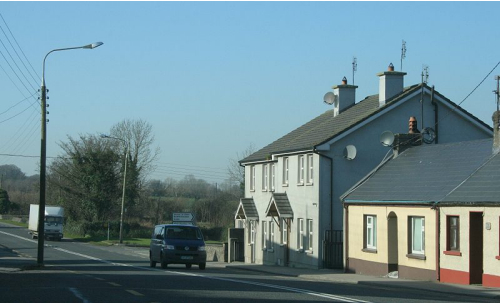One of the things that really bugs me about the banking collapse is why our media and politicians didn’t spot the madness underpinning the system. The excuse that these derivatives and securitised debt assets were too technically complex for ordinary mortals to understand won’t wash, because the nub of the madness was obvious: if you give mortgages to people who will have trouble with payments, and you allow them (as in the UK) to self-certify their incomes, then even an idiot can see the problem.
Similarly, if the credit rating agencies on whom the entire trading systems depends get their incomes from the companies whose products they are supposed to be rating, then you can expect trouble, because it’s nuts. If your bonus depends on satisfying Citigroup that its fancy new derivatives are worthy of an AAA rating, then — human nature being what it is — guess what happens? The lunacy of what was happening ought to have been obvious, especially to those media outlets which supposedly specialise in covering financial markets. And to regulators.
(En passant, much the same holds for the UK’s BSE catastrophe. You don’t have to be an expert biologist to know that feeding animal remains to herbivores is not a good idea. But again, nobody in the media pointed that out.)
But all this is about observers who are outside the magic circle of bonus-fuelled lunacy. Now there’s an interesting NYT story about what went on in Citigroup.
In September 2007, with Wall Street confronting a crisis caused by too many souring mortgages, Citigroup executives gathered in a wood-paneled library to assess their own well-being.
There, Citigroup’s chief executive, Charles O. Prince III, learned for the first time that the bank owned about $43 billion in mortgage-related assets. He asked Thomas G. Maheras, who oversaw trading at the bank, whether everything was O.K.
Mr. Maheras told his boss that no big losses were looming, according to people briefed on the meeting who would speak only on the condition that they not be named.
For months, Mr. Maheras’s reassurances to others at Citigroup had quieted internal concerns about the bank’s vulnerabilities. But this time, a risk-management team was dispatched to more rigorously examine Citigroup’s huge mortgage-related holdings. They were too late, however: within several weeks, Citigroup would announce billions of dollars in losses.
Normally, a big bank would never allow the word of just one executive to carry so much weight. Instead, it would have its risk managers aggressively look over any shoulder and guard against trading or lending excesses.
But many Citigroup insiders say the bank’s risk managers never investigated deeply enough. Because of longstanding ties that clouded their judgment, the very people charged with overseeing deal makers eager to increase short-term earnings — and executives’ multimillion-dollar bonuses — failed to rein them in, these insiders say.
LATER: Nice email from the other side of the world attaching a report from Le Monde Diplomatique which has this interesting anecdote:
So far China has been relatively unaffected by the worst insanities of the investment markets. The Financial Times reported a story that did the rounds in Beijing: “At a secret meeting of top Communist officials at the start of this decade, Zhu Rongji, then China’s premier, summoned senior academics and finance officials to teach a crash course on complex financial instruments. Financial derivatives. . . were described as like putting a mirror in front of another mirror, allowing a physical object to be reflected into infinity”. This is a good description of a mechanism with a worldwide value of more than a $1,000 trillion – the equivalent of 20 years’ global production – resting on sand…


